Publications
Articles, publications, books, tools and multimedia features from the U.S. Institute of Peace provide the latest news, analysis, research findings, practitioner guides and reports, all related to the conflict zones and issues that are at the center of the Institute’s work to prevent and reduce violent conflict.
2008-2009 Guidebook
The 2008-2009 National Peace Essay Contest Guidebook contains: Introduction What Do Essay Contest Winners Receive? When Is the Deadline? What Does the Institute Provide to Help Students and Teachers Participate? Who Is Eligible? Information about the Contest Coordinator How Will Your Essay Be Judged? What Are the Essay Requirements? Directions for Entering the Contest Essay Submission Checklist Sample Winning Essay from 2007 Detachable Contest Poster Download...
In the Field: Colombia
The Religion and Peacemaking program at USIP visited Colombia in November 2008 to support a joint-initiative of the Conferencia de Religiosos y Religiosas de Colombia, the organizing body of Catholic men’s and women’s religious orders, and Justapaz, a Menonite organization, to convene a four-day workshop outside of Bogota for Catholic and Protestant women peacemakers. This workshop provided an opportunity for women doing peace work on the ground through their churches to share best practices,...
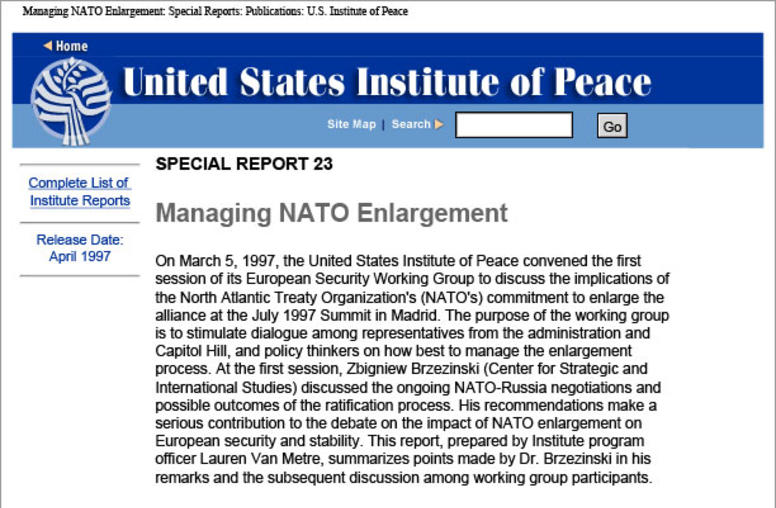
Managing NATO Enlargement
On March 5, 1997, the United States Institute of Peace convened the first session of its European Security Working Group to discuss the implications of the North Atlantic Treaty Organization's (NATO's) commitment to enlarge the alliance at the July 1997 Summit in Madrid.
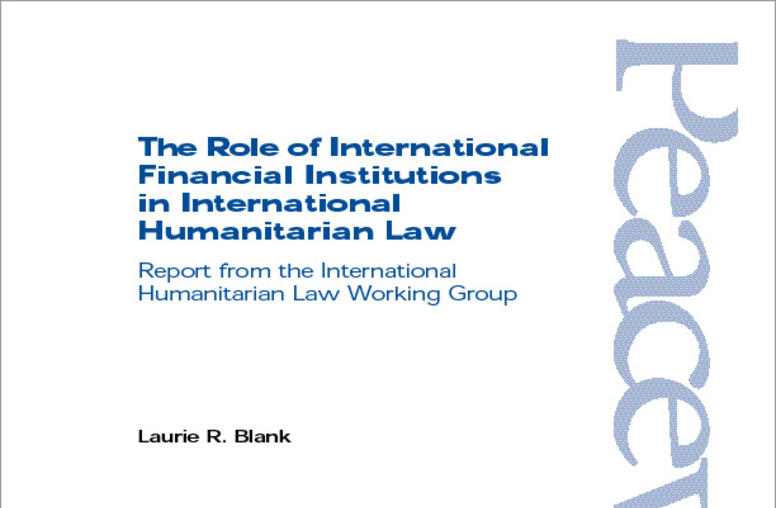
Working Group on Civil-Military Relations in Nonpermissive Environments
The Working Group serves as a venue for discussion on the challenges posed by operations where combat and reconstruction and relief are occurring simultaneously.
Serious Gaming and Simulations – the Power and Potential for Peacebuilders – A Deep Dive Publication and Panel Discussion
The Center of Innovation for Science, Technology, and Peacebuilding has partnered with ETC/I to explore in-depth Serious Gaming and Simulations as tools for improved decision-making by peacebuilders.
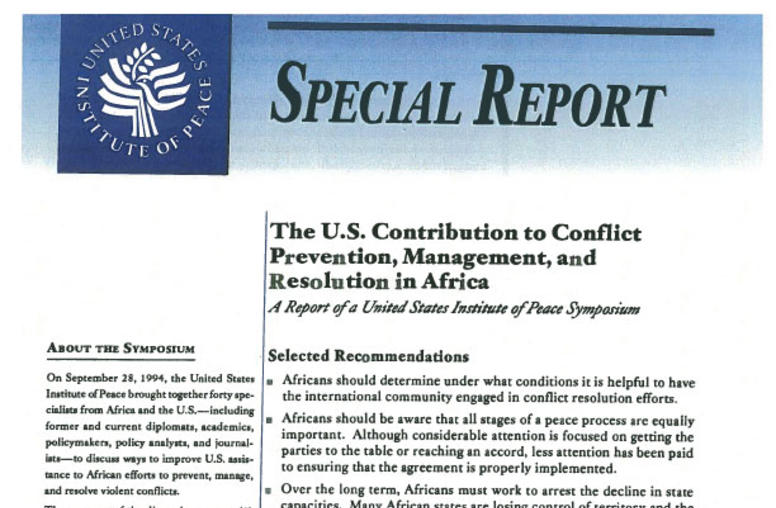
The U.S. Contribution to Conflict Prevention, Management, and Resolution in Africa
The failure of the United Nations peacekeeping mission in Somalia (UNOSOM II) to build a new state in that war-ravaged country, after the costly U.S. military intervention is often viewed as a critical lesson about the problems associated with the international community's attempts to resolve conflict in Africa. Thus, when genocidal strife erupted in Rwanda in 1994, causing millions of Rwandans to flee into neighboring countries, there was a strong reluctance to allow U.S. forces to become e...
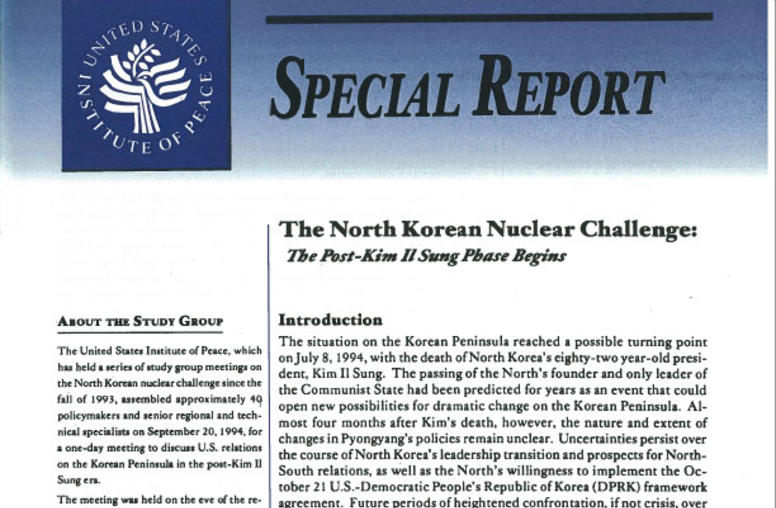
The North Korean Nuclear Challenge: The Post–Kim Il Sung Phase Begins
The situation on the Korean Peninsula reached a possible turning point on July 8, 1994, with the death of North Korea's eighty-two year-old president, Kim Il Sung. The passing of the North's founder and only leader of the Communist State had been predicted for years as an event that could open new possibilities for dramatic change on the Korean Peninsula. The United States, South Korea, and North Korea's other neighbors face significant challenges in determining policy adjustments that might...
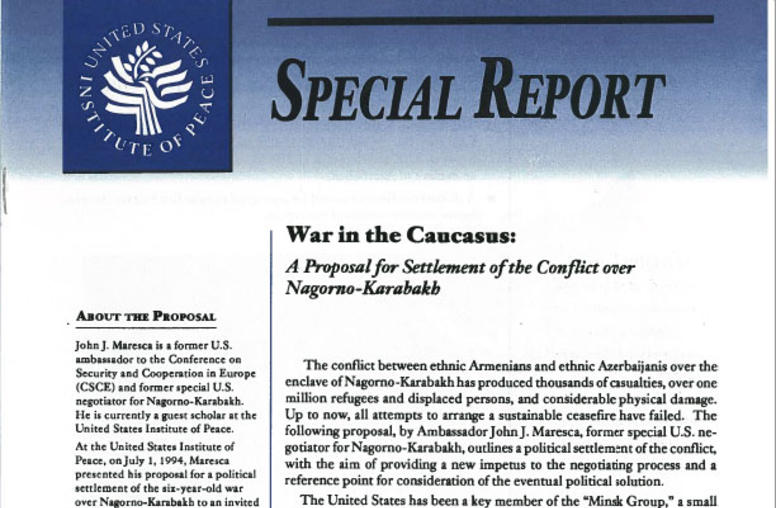
War in the Caucasus: A Proposal for Settlement of the Conflict over Nagorno-Karabakh
The conflict between ethnic Armenians and ethnic Azerbaijanis over the enclave of Nagorno-Karabakh has produced thousands of casualties, over one million refugees and displaced persons, and considerable physical damage. Up to now, all attempts to arrange a sustainable ceasefire have failed. The following proposal, by Ambassador John J. Maresca, former special U.S. negotiator for Nagorno-Karabakh, outlines a political settlement of the conflict, with the aim of providing a new impetus to the n...
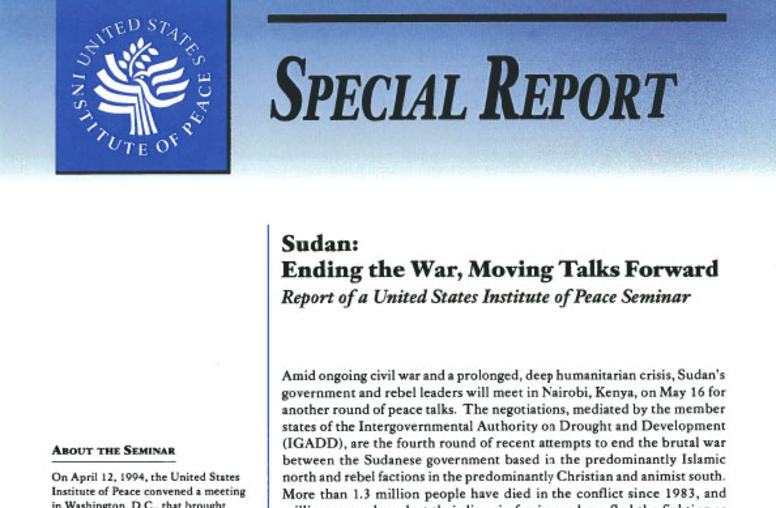
Sudan: Ending the War, Moving Talks Forward
Civil war has plagued Sudan off and on since decolonization began in 1955. Between 1955 and 1972, war raged between the predominantly Arab and Islamic north and the Christian and animist south over southern claims for autonomy and self-rule. The war ended with the Addis Ababa agreement, which granted local autonomy to the south. Currently there are deep disagreements in the north between the Islamist government and opposition parties (e.g., the Umma Party and the Democratic Unionist Party) o...